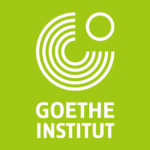The Irish language has faced many challenges over the last several hundred years colonisation, famine, mass emigration but, like the people, it is resilient; and like the people, its history is a long and vibrant one. Much of this is reflected in Ireland s vernacular literature, which is among the oldest in Europe (outside of the classical worlds of Greece and Rome); and several of the world s most extensive and exciting sagas were written in Irish: there are tales of heroes, raids, wooings, feasts, slayings and visions the most famous of which can be found in the great Irish epic, the T in B C ailnge. In many ways the Irish language is the story of Ireland in microcosm; it has been shaped and influenced by everything from the Viking and Norman invasions to its initial contact and engagement with the Christian world. Early Irish writings are therefore not just stories; they are the embodiment of an oral inheritance that captured the society, culture, beliefs and politics of our ancestors. Learning the Irish language makes such texts and tales more accessible and therefore helps bring us closer to many elements of our shared heritage.
What does it involve As with other language programmes, part-time Irish Language courses will focus on teaching students the basic rules of grammar and vocabulary needed in order to communicate in speech or writing. Though Irish is our native tongue, the sad fact is that it is still only spoken by a minority of the population. Most course providers will bear this is mind as they attempt to overcome any intimidation beginners may initially feel by creating a friendly and supportive learning environment. To help participants realise that the Irish language is not only a vibrant one, but that it is also relevant to all aspects of modern life, many courses deliver their training through a varied evening programme of lectures, poetry-readings, table-quizzes or c il music. Another important aspect of Irish Language courses, at all levels, is that they tend to favour interaction and conversation over memorisation. Becoming accustomed to the sounds, inflections and accents of a language through conversing, reading and listening is, of course, a vital part of developing a proficiency in it. This is something that the government has recognised and can be seen in the relatively recent decision to award more marks (40% of the overall score) to the oral component of the Irish Leaving Cert programme. Conversation therefore occupies a central place in the majority of Irish Language programmes a fact that makes many of them an ideal source of exam preparation for students.
Why do it Learning to speak and read the Irish language allows learners to connect with the traditions, history and culture that inform their collective national identity. It can therefore help strengthen one s sense of place. Those who spend some time learning Irish inevitably come to appreciate it more as something that is unique to this land and its people. Maintaining and improving the health of the Irish language is therefore hugely important; and securing its future should be a concern for everyone on our little island. Each effort to embrace and incorporate Irish into the various aspects of our lives thus helps to safeguard the its continued resurgence. Knowing how to say even a few sentences in the home can have desirable knock-on effects, such as allowing our children to become accustomed to the language of their forefathers.
What comes next The Irish government has for years made on a concerted effort to improve the use, status and standard of the Irish language, and in 2007 succeeded in securing its position as an official and working language of the EU. However, the government s efforts will need to be matched by those of the people if there is to be a continued recovery. There are certain roles that see these efforts converge. For instance, the Irish language holds an important position in An Garda S och na and in the Defence Forces, and those looking to secure positions within these services will be expected to meet a certain standards in the language. Primary school teachers that have been trained outside of the state are also required to attend a recognised Irish language course in the Gaeltacht. In addition to those roles where knowledge of the Irish language is compulsory, there are also positions where having some Irish language ability can prove beneficial, such as in the leisure and tourism industries.
At a glance Part-time beginner- and intermediate-level Irish language courses generally last for between one and ten weeks. Students can also avail of a distance learning option. Online courses in Irish typically last for around four weeks.













